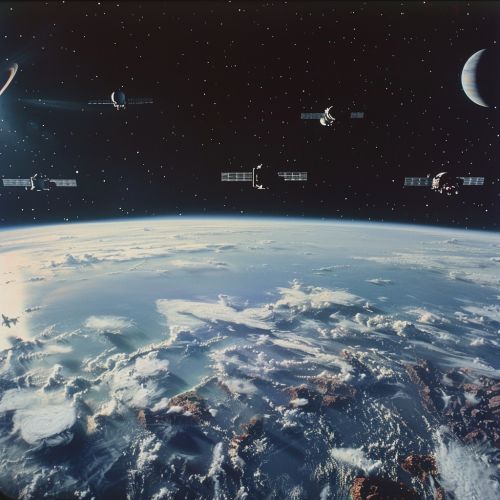Space Law
Introduction
Space law is a branch of international law that encompasses national and international regulations and treaties that govern activities in outer space. International lawyers and government legal departments have been addressing space-related issues since the 1950s, and a number of treaties have been signed to regulate activities such as the exploration and use of outer space, the moon, and other celestial bodies.
History
The history of space law can be traced back to the launch of the world's first artificial satellite, Sputnik 1, by the Soviet Union in October 1957. This event marked the beginning of the 'Space Age' and raised new legal questions about the use and exploration of outer space. The United Nations General Assembly established the United Nations Committee on the Peaceful Uses of Outer Space (COPUOS) in 1959 to address these issues.


Principles of Space Law
The foundational principles of space law are embodied in the 1967 Treaty on Principles Governing the Activities of States in the Exploration and Use of Outer Space, including the Moon and Other Celestial Bodies (Outer Space Treaty). The treaty sets out the basic framework for international space law, including the following principles:
- Outer space, including the moon and other celestial bodies, is not subject to national appropriation by claim of sovereignty, by means of use or occupation, or by any other means.
- States shall not place nuclear weapons or any other kinds of weapons of mass destruction in orbit or on celestial bodies or station them in outer space in any other manner.
- The exploration and use of outer space shall be carried out for the benefit and in the interests of all countries and shall be the province of all mankind.
- States shall be liable for damage caused by their space objects.
- States shall avoid harmful contamination of space and celestial bodies.
International Space Law Treaties and Agreements
In addition to the Outer Space Treaty, several other international treaties and agreements have been established to further regulate activities in outer space. These include:
- The 1968 Agreement on the Rescue of Astronauts, the Return of Astronauts and the Return of Objects Launched into Outer Space (Rescue Agreement).
- The 1972 Convention on International Liability for Damage Caused by Space Objects (Liability Convention).
- The 1975 Convention on Registration of Objects Launched into Outer Space (Registration Convention).
- The 1979 Agreement Governing the Activities of States on the Moon and Other Celestial Bodies (Moon Agreement).
National Space Law
In addition to international treaties and agreements, many countries have established their own national laws to regulate space-related activities. These laws often deal with issues such as the licensing of launches, the operation of satellites, liability for damage caused by space objects, and the use of space for national security purposes.
Current Issues in Space Law
Space law is a rapidly evolving field, and a number of current issues are the subject of ongoing international debate. These include the legal status of orbital slots in geostationary orbit, the legal implications of space tourism, the ownership of resources mined from celestial bodies, and the legal issues associated with the long-term sustainability of outer space activities.
Conclusion
Space law is a complex and evolving field that seeks to balance the interests of different countries and commercial entities with the goal of ensuring the peaceful and sustainable use of outer space. As space activities continue to expand and become more complex, the development and application of space law will continue to be of critical importance.
